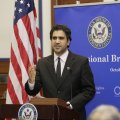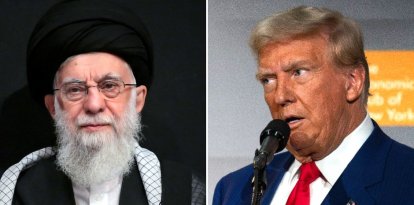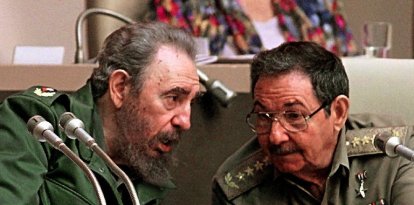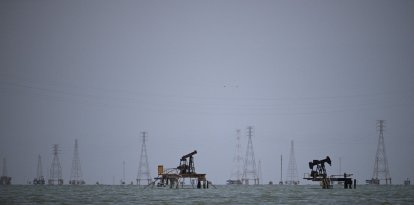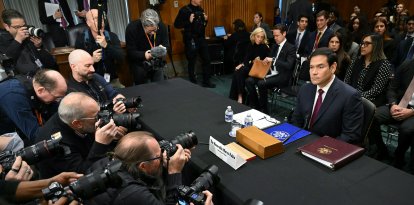Empower the of People of Iran Who Seek Change and Freedom
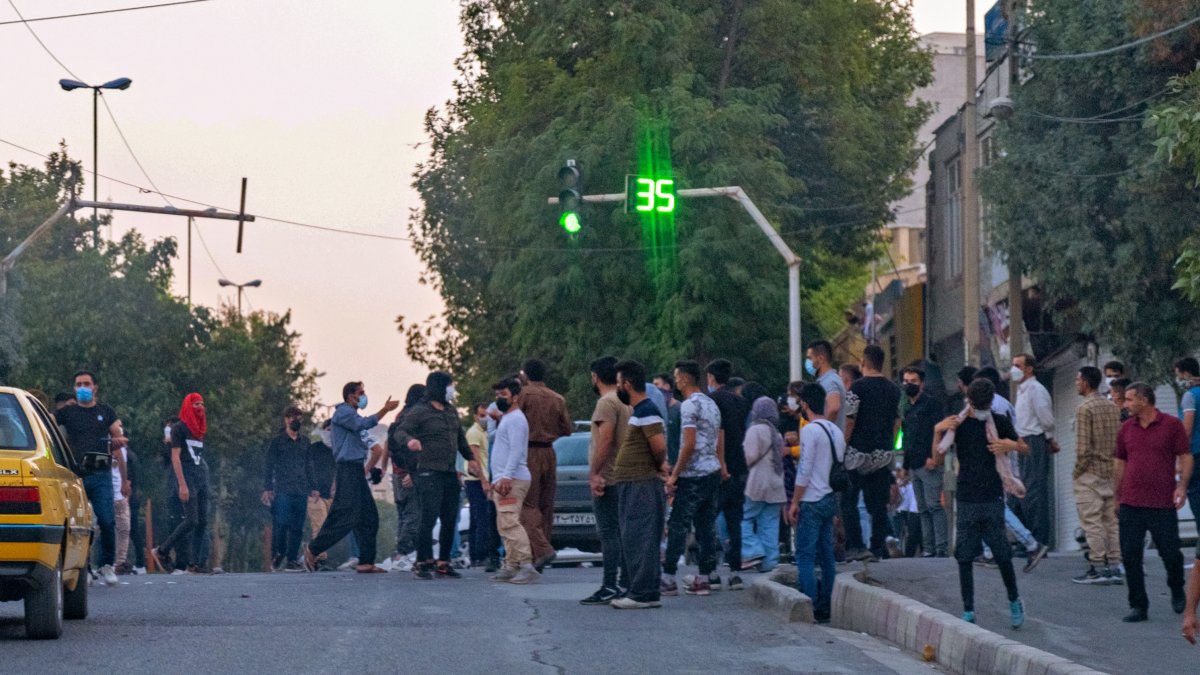
Una imagen obtenida por AFP fuera de Irán muestra a iraníes protestando en Sanandaj
For decades, the brave people of Iran have arisen time and again, demanding a future free from oppression and authoritarian rule.
In recent years, Iranians have launched countless uprisings, each filled with hope and courage, only to be met with violent repression from the regime, and mainly indifference from abroad. Each wave of protests saw the regime's security forces killing thousands of demonstrators, and imprisoning and torturing many more. These movements have shown the strength of the Iranian people's resolve, but despite their cries for freedom, support from the West— usually merely vocal, about the ideals of democracy — has remained disappointingly muted.
In the eyes of many Iranians, this silence from democratic nations that supposedly champion human rights stands in intolerable contrast to their principles and has repeatedly left Iranian protesters feeling abandoned in their struggle.
During the 2022 nationwide protests, sparked by the hijab laws, many Iranians, especially young women, took to the streets to protest against mandatory veiling and other repressive policies. The movement represented not only a push against strict Islamic dress codes but also a broader rejection of the regime's authoritarian rule. Even as the crackdown unfolded— with the regime arresting, beating, and even murdering protesters — the Western response remained largely passive and inert, instead of offering robust support. Iranians risking their lives in the streets, emboldened by the hope of international solidarity, were left without any backing that many had expected from countries that profess to support freedom and human rights.
In 2009, the Green Movement had erupted in Iran after a questionable presidential election. Millions of Iranians filled the streets, while chanting slogans, waving banners, and denouncing what they to many appeared a fraudulent election outcome. Protesters sought recognition from world leaders, particularly from the Obama administration in the United States and European leaders, in the hopes that these democratic nations would support their call for a fair electoral process and an end to oppression.
Protesters chanted, "Obama, are you with us or the mullahs?" — a direct plea for then U.S. President Barack Obama to take a stand. Yet, to the disappointment of many Iranians, Western leaders remained largely silent, choosing not to intervene or offer any real backing. Obama later admitted that his administration's silence during this critical period was a "mistake," but even then, mentioned only ineffectual, verbal support:
"In retrospect, I think that was a mistake. Every time we see a flash, a glimmer of hope, of people longing for freedom, I think we have to point it out. We have to shine a spotlight on it. We have to express some solidarity about it."
While most democratic nations have hesitated to align themselves visibly with Iran's pro-democracy movements, one country has stood out as an unwavering ally of the Iranian people: Israel. Despite the longstanding enmity between Israel and Iran's regime, Israeli leaders have boldly supported the Iranian people's right to freedom and self-determination. Israeli Prime Minister Benjamin Netanyahu, called "The Churchill of the Middle East," has not only addressed Iran's nuclear threats -- when the US did not totally undermine Israel by leaking its plans beforehand -- but has reached out directly to Iranians through social media, encouraging them not to lose hope. "There's one thing Khamenei's regime fears more than Israel," Netanyahu declared in a message shared on X. "It's you – the people of Iran." He added:
"They spend so much time and money trying to crush your hopes and curb your dreams. Don't let your dreams die. Don't lose hope, and know that Israel and others in the free world stand with you."
Netanyahu went even further, envisioning a future in which a free Iran could unlock its full potential. He pointed out that, under a different government, Iran's children could access world-class education, the people could benefit from advanced healthcare, and the country's infrastructure could be rebuilt to provide clean water and essential services. Netanyahu even pledged Israel's assistance in reconstructing Iran's failing infrastructure, citing Israel's cutting-edge desalination technology as an example.
"Since I last spoke to you," Netanyahu continued, "the Khamenei regime launched hundreds of ballistic missiles at my country, Israel. That attack came at a cost of $2.3 billion." Indeed, these billions, instead of being spent on futile attacks, could have been directed towards the Iranian people's needs, strengthening their education and healthcare systems, or improving transportation. By framing the issue in terms of wasted resources, Netanyahu highlighted the regime's reckless spending at the expense of its citizens, emphasizing that the people of Iran deserve better.
Such messages have apparently resonated with many Iranians who see in another country a beacon of hope and a sign that they are not completely alone in their fight against the regime's repression:
"On October 8, the day after the [2023 Hamas] attacks... some pro-government figures tried to raise the Palestinian flag from the [soccer] stands. The backlash they faced was immediate. Thousands of fans started shouting a slogan formulated in the rowdy... tone of soccer fans everywhere: 'Shove the Palestinian flag up your a–"
Israel's stance stands in blinding contrast to that of many Western countries, particularly those in Europe. While Israel, a nation currently under attack on multiple fronts, has firmly stood with the people of Iran, many European countries have continued to prioritize economic ties with Tehran over human rights.
European governments, rather than risking confrontation with Iran's regime, have preferred to maintain business relations and avoid taking any position that might upset the mullahs. Those countries are complicit in the suffering of the Iranian people. The unalleviated silence emboldens the regime, rather than holds it accountable.
After nearly four decades of maintaining diplomatic relationships with the Islamic Republic of Iran, the time is long overdue for Western nations to take a real stand. If these countries genuinely believe in the principles of "democracy" and "freedom" that they so often preach, they would look a lot more credible if they demonstrated this professed commitment by genuinely supporting Iranians yearning for freedom.
This would mean cutting diplomatic ties with Iran, imposing and enforcing serious primary and secondary sanctions on the regime, putting military options on the table, and fully supporting Israel and, one hopes, the incoming US administration, in putting a permanent end to Iran's nuclear program as well as to its brutal, expansionist regime.
Only then will the actions of these nations align with their suspect rhetoric about "human rights," and show that they are willing to deliver real backing to those risking their lives for change in one of the world's most repressive states.




